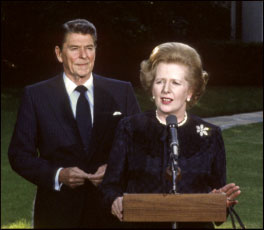From now until the November presidential election, the mainstream media will constantly play their favorite hit: we are a divided nation searching for a candidate who will march us toward unity. Their single hit will be followed by hours of career pundits (oxymoron?) speculating about presidential candidates through the undefined rubric of “electability” (and for female candidates, of course, the question of likability!). CNN will put on a panel of 12 pundits, only 4 of whom actually fit within the frame, to ask abstract questions like: What candidate will reach across the aisle and engage in bipartisan politics? Who will restore civility to American politics and mitigate our political divisions? This is the embodiment of this line by Sohrab Sepehri: “I saw a train carrying politics —and how empty it went.” The media’s obsession with national unity is ironically happening at a time when many Americans say they have lost faith in the media. So why are many Americans unimpressed with the media’s call for unity? In short, it is unmistakably a function of growing inequality. Let’s begin in the 1980s.

Four decades ago, we entered the age of neoliberal economics as Ronald Reagan (term 1981-1989) and Margaret Thatcher (term 1979-1990) rose to power on either side of the Atlantic. Thatcher infamously said in an interview with Douglas Keay in 1987 that people “are casting their problems at society. And, you know, there’s no such thing as society. There are individual men and women and there are families. And no government can do anything except through people, and people must look after themselves first. It is our duty to look after ourselves and then, also, to look after our neighbours.” Reagan and Thatcher’s brand of neoliberalism dictated that poverty was not a lack of cash (how could that be?), but decidedly one’s lack of character. They proclaimed that public problems do not have public solutions, only private, individual solutions. They proclaimed that economic competition was the only organizational principle of human interaction (what else could we be on this planet for?).
Neoliberal politicians since then, very much including democratic presidents, love talking about equal opportunity, but they never address the ways in which the government must build a social system that will produce not only equal opportunity but also equal outcome. Four decades later, the results of neoliberalism are in: workers’ unions have been crushed, wages have remained stagnant for decades, corporate money absolutely runs politics locally and nationally, antitrust laws have been weakened and given way to massive corporate monopolies, tax laws have been rigged in favor of corporations, campaign finance laws have been changed to remove any obstacle in the path of dark money’s influence in Washington, our warming planet is edging ever closer to the precipice thanks in part to the government subsidizing the fossil fuel industry, and education has been under institutional assault for decades (a good indicator of that is the fact that too many Americans disbelieve the climate crisis). Overall, we have a government that has no interest in governing, only to sell our labor and natural resources to the highest bidder available. No wonder why so many Americans want smaller government in their lives.
The ideological offspring of Reagan and Thatcher has grown into a predatory system programmed to exploit and grow ever more barbaric. There could be no harsher indictment of Reagan’s neoliberalism with its globalist approach to corporate-building than the rise of Donald J. Trump. A globalist himself, Trump rode the waves of discontent with neoliberal politics (dubbed establishment politics) all the way to the White House, with no small help from the winds of bigotry and race-baiting rhetoric (to quote senator Lindsey Graham, in 2015, of course). If Reagan were to come back to life today, he would be radically at odds with his own party. In the 1980s, “tariff” was an ugly word. In 2016, economic protectionism helped sharply distinguish Trump from Hillary Clinton. Trump cynically pitted working class Americans against undocumented immigrants, both of whom had been left out of the greedy calculations of corporate treaties like NAFTA that auctioned their collective dignity.
Bernie Sanders’ popularity on the one hand and Trump’s rise to power on the other poked giant holes in the media’s elitist narrative of an establishment candidate like Hillary Clinton easily winning the White House on the back of the good ol’ “electability” rubric. But somehow, the corporate-owned media still has not learned the lessons of 2016. How do we know that? Because it still attempts to spin Trump’s unexpected victory as anything but a harsh indictment of neoliberal predatory capitalism in the U.S. Some pundits yearn for a return to the bygone days of Barack Obama —you know, the president who cut a massive check out of our tax money to bail out Wall Street and argued that the best way to combat corrupt banking practices would be less—and certainly not more—government regulations. Reasonable-sounding pundits like David Brooks may be unhappy with Trump’s assaults on every democratic norm imaginable, but they sheepishly admit the economy is doing too well for most Americans to care. But these pundits rarely mention the fact that economic growth —the stock market, unemployment rates, etc— is not the sole indicator of people’s quality of life and livelihood. In fact, in today’s reality, it is a bad indicator.
We must always ask: For whom exactly is this economy doing well? Consider this data: “In 2018, the richest 10% [in the U.S.] held 70% of total household wealth, up from 60% in 1989. The share funneled to the top 1%’ jumped to 32% last year from 23% in 1989,” reported by Forbes. There are so many more troubling statistics related to income inequality and wealth gap in the U.S. The media would tell you that these statistics are hallmarks of failed socialist projects. But no, in this case, they come out of the U.S., a country that confidently asserts its brand of neoliberal capitalism on every corner of the world. The mainstream media uncritically repeats the Trump administration’s claim that unemployment is the lowest it has ever been and that the economy is doing better than it ever has. Given the widening wealth gap and lack of health care coverage, it is indeed no surprise that Americans are working multiple jobs in a corporate world that has stripped workers of their most basic human rights. This economy is working for the global elite, the rest are merely staying afloat.
Neoliberal capitalism has utterly broken our social system (but Thatcher might take issue with my using the word “social”). Voter turnout in this country is abysmal (65 percent for women and 68 percent for men) and those who did participate in 2016 voted for a candidate who promised them not to safeguard but to disrupt the status quo (as it turned out, he’s destroying it). Yet, the mainstream media has manufactured a bogus tool with which to measure a presidential candidate’s electability on an abstract spectrum of “too far left” and “moderately center.” The following question always gets left out: left in relation to what? Certainly not in relation to the obscene levels of wealth hoarded by corporations and the troubling depth of poverty that many working class Americans have been plunged into. What we consider as left-wing policies, like Healthcare for All, are considered mainstream policies in most developed countries. The media knows that, but keeps on selling you a fake narrative.
Where do we go from here? First, we need to fix our broken electoral system that operates based on non-representation. Almost everything in our electoral system is designed to discourage people from voting: it expects that you are free on a working day (Tuesday) and it trusts that you have disposable income to support a candidate whose policies are aligned with yours. If both boxes check, then you best not be a person of color in a state with a well-documented history of voter suppression. Because of the electoral college, an archaic institution, our presidential elections come down to some 500,000 votes in a handful of swing states. And a certain political party has perfected the art of winning elections through voter suppression, gerrymandering, and the proliferation of misinformation (thank you Facebook!). Our electoral system is deeply flawed, but it is our best shot at fixing our government and turning it into a political institution that has any moral investment in governing. We, the citizens, must begin by building a coalition of engaged voters centered on a set of shared social vocabulary: economic justice instead of equal opportunity; public solutions to public problems instead of reliance on corporate charity; one person, one vote instead of Citizens United; climate justice instead of fossil fuel subsidies; community-care instead of self-care, and equal access to reproductive rights for all women, and nothing less.
When the mainstream media floats the idea of bipartisanship and national unity in the abstract, they do a lot of damage to our social discourse. For one, in doing so, the media uncritically accepts the idea that our government should remain a two-party system and that any independently-elected candidate will succeed only if they get along with the system as is. When they constantly measure each candidate through the nonsensical rubric of “electability” without placing it in the context of growing inequality, the media does so much damage to the public trust. Don’t get me wrong: I would love for my elected officials to engage in bipartisan efforts, but the more important question is toward what end. Nancy Pelosi’s Democratic party has given funding to this racist administration to pursue its military misadventures abroad and hurt immigrants here at home. I only wish Pelosi’s “resistance” materialized beyond political theatricality when she knows millions are watching.
I do not send a politician to Washington to get chummy with other politicians—I send them to D.C. so they can disrupt this cruel economic and political system. You think that is idealistic? It may be. But it would be radically naive to wait until we further plunge into climate and class barbarism. The continuation of the status quo only works for those whose bottom line relies on business done as usual. If Republicans and Democrats wish to collaborate on ways to extend Healthcare to all Americans, then I am all for bipartisanship and national unity. But unfortunately, the only two issues that truly unite the two parties are corporate generosity and endless wars. If the media is to restore its lost faith and integrity among the American people, then it must speak of a far more radical type of national unity: unity in material possession. Until then, I agree with Trump: the media is fake. But as always, the president is spectacularly implicated in his diagnosis of all that is corrupt in America today.
References:
Matthew Ingram, “Most Americans say they have lost trust in the media” (The Media Today, September 2018)
“Margaret Thatcher: a life in quotes: Key comments from Britain’s first female prime minister” (The Guardian, April 2013)
Efraim Benmelech, Nittai K. Bergman, Hyunseob Kim, “What’s Causing Wage Stagnation in America?” (KelloggInsight, December 2019)
Russell Berman, “How Can the U.S. Shrink the Influence of Money in Politics?” (The Atlantic, March 2016)
Stephen Metcalf, “Neoliberalism: the idea that swallowed the world” (The Guardian, August 2017)
Kevin Zeese and Margaret Flowers, “It’s Been 10 Years Since Banks Were Bailed Out and People Were Sold Out” (Truthdig, September 2018)
Pedro Nicolaci de Costa, “America’s Humongous Wealth Gap Is Widening Further” (Forbes, May 2019)
Drew Desilver, “U.S. trails most developed countries in voter turnout” (Pew Research Center, May 2018)
Suggested readings:
Anand Giridharadas, Winners Take All: The Elite Charade of Changing the World Vintage (Vintage, 2019)
George Monbiot, How Did We Get into This Mess? (Verso, 2016)
Naomi Klein, This Changes Everything: Capitalism vs. The Climate (Simon & Schuster, 2015)
Carol Anderson, One Person, No Vote: How Voter Suppression Is Destroying Our Democracy (Bloomsbury Publishing, 2019)
Aria Fani is an assistant professor of Near Eastern Languages at the University of Washington, Seattle. Reach out to him at ariafani@uw.edu.


















